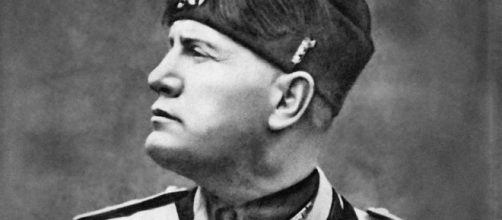FASCISM is a fascinating ideology, it grew on the back of social and economic problems but are the conditions that allow such an ideology to thrive ingrained into western culture and politics? In a series of articles, I hope answer such a question. This is a subject that I have been researching pretty intensely for the last year or so and will continue to do so until I reach a potential conclusion.
Where to begin has been the problem along with the length of each article. This is why I am planning a long series of short articles on the question itself.
First off, I shall begin with the origins of the man who spearheaded the first successful Fascist movement, Benito Mussolini.
Benito Mussolini: ‘The man of the people’
He described himself as the man of the people but his upbringing shows that he is far from such a description. His father was a local blacksmith and a part-time Socialist journalist and his mother was a teacher, they were very well off. From a young age he was surrounded by politics because his father would spend a lot of time talking about politics. Unsurprisingly, he was a bully at school and his teachers couldn’t control his aggressive behaviour. However, he was intelligent and worked as a schoolmaster for a short period. Upon leaving Italy from Switzerland after becoming disillusioned by teaching, he gained a reputation for being intelligent and uncompromising with an uncommon presence, he was also noted for his rhetorical talents.
After eventually returning to Italy, he became a notable journalist and was imprisoned multiple times because of violent behaviour. He founded his own newspaper, La Lotta di Classe (The Class Struggle) and through this became the editor of the official Socialist newspaper, Avanti! (Forward!). Using powerful anti-imperialist, anti-nationalist and anti-militarist rhetoric, he quickly doubled the newspapers circulation. However, his ideological approach soon changed, he was originally furiously against Italy’s intervention in WWI but soon changed his mind because of Karl Marx’s aphorism that social revolution usually follows war and as a consequence he was kicked out of the Socialist Party.
It was in 1915 that he joined the military and served Italy on the front lines and reaching the rank of Corporal, he was eventually wounded and discharged from military service.
Upon returning from the military, he was a convinced and ardent anti-Socialist and in 1918 believed that Italy needed a dictator to guide them through the economic and political crisis that was engulfing the country. Just year later around 200 people gathered in an office in the Piazza San Seplcro in Milan to discuss the establishment of a new movement within Italian politics. The new force was named the fasci di combattimento or fighting bands.
The group of fighters were bound together as close as those secured by the symbols of ancient Roman authority, the fasces of the lictors, the fasces derives from the Latin word fascis, which means ‘bundle’. The fasces were carried by the lictors, or attendants and characterised as an axe head projecting from a bundle of elm or birch rods which were tied together with a red strap; this was the symbol of penal power.
This signalled the birth of the Fascist movement in Italy in 1919.
Next article will be about his Fascist movement’s rise from the shadows to power, focusing on the movement as whole to better understand the reason behind their popularity.

